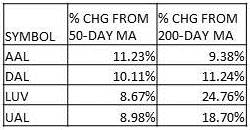And yet there are signals of personal defeat which are like red lamps on broken roads, to these we must pay heed. I grew anxious when a man’s speech began to betray him; when he was full of windy talk of what the Boche had done in the new sector the battalion was taking over, of some new gas. It was always about something which was going to happen; the wretched fellow must have known the mess would muzzle him if it could, but he seemed driven by some inner force to chatter incessantly of every calamity that could conceivably come to pass. It was as if he had come to terms with the devil himself, that if he could make others as windy, his life would be spared. How full of apprehension the fellow was; death came to him daily in a hundred shapes. This was fear in its infancy. It was a bad sign, for when a man talked like that, his self-respect was going, and the battle was already half lost. It was just a matter of time. Such a man did the battalion no good for the disease was infectious; I was glad to get him away.
Lord Moran, The Anatomy of Courage
[Readers needing background may refer to the earlier members of this series, Don’t Panic: Against the Spirit of the Age; Don’t Panic: A Continuing Series; Don’t Panic: A Continuing Series Ebola or Black Heva?; and Don’t Panic: A Continuing Series Ebola Realities and the True Test.]
Not everyone is helpful in what Strauss and Howe call a Crisis Era. This is not a matter of ability or resources, but of attitude. I have recently encountered numerous highly intelligent, capable, and often firmly upper-middle class men who at the slightest provocation vehemently insist that the United States is doomed. This year alone, they have predicted at least three of the last zero national calamities. Repeatedly failed scenarios make no impression on them. Some of these people are actually planning to run and hide somewhere.

